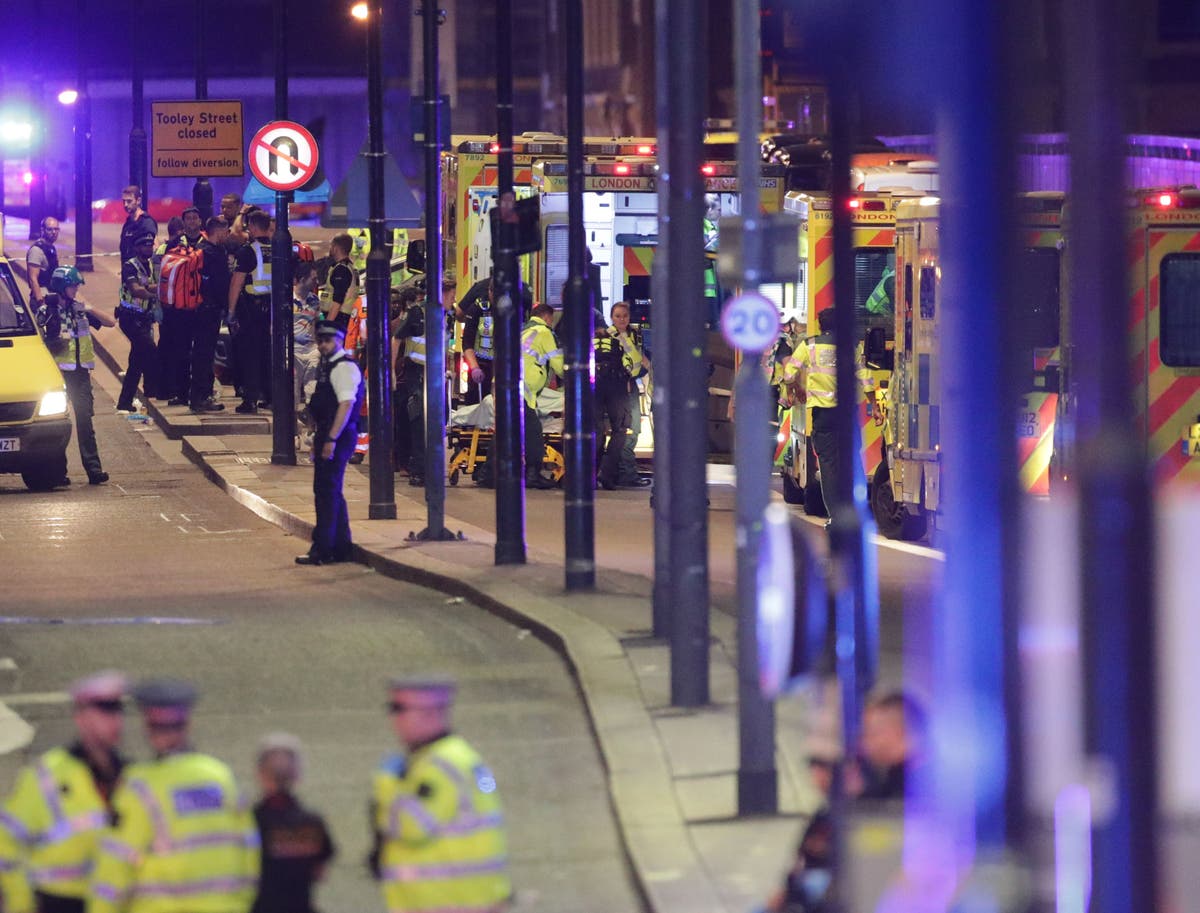
Islamist terrorists have been able to seize control of prison wings and guards are worried about challenging them, a report by the terrorism watchdog has found.
The review laid bare the state of the country’s prisons and revealed how terrorist offenders are held in high esteem by other prisoners.
Extremists appoint their own “emirs” who undermine the authority of the prison imams, the inquiry found. Jonathan Hall QC, the government’s independent reviewer of terrorism legislation, said that prison guards often work with the “emirs” rather than challenge them.
The failure of the prison service to tackle the dangers of Islamist gangs is leaving extremists free to recruit terrorists from behind bars and plan further attacks, Mr Hall warned.
“I was told that prison officers sometimes appeal to the wing ‘emir’ for their assistance in maintaining good order,” Mr Hall wrote.
The report, which was commissioned after the London Bridge terror attack, also found that offenders who have committed serious Islamist terrorist offences are respected by other prisoners and would often be sought out for recruitment to prison gangs.
Mr Hall noted that the London bridge terrorist, Usman Khan, had previously admitted that while he was in prison he tried to “gain sort of points” with the terrorist hate cleric Abu Hamza.
The last four terrorist attacks in the UK have been carried out by prisoners serving their sentences in custody, or on licence in the community, the report said.
While in prison, Streatham terrorist, Sudesh Amman, had signalled his intent to commit an attack once out in the community, a court heard. Police were so concerned about Amman’s unrepentant behaviour in Belmarsh that they asked the prison governor not to release him.
However, the request was turned down and Amman went on to stab two people just days after his release in January 2020.
“Faith-based self-segregation by prisoner provides a fertile base for violent Islamist activity,” the report said. It also noted that Islamist prisoners can sometimes make “insincere allegations of racism and Islamophobia” when their behaviour is challenged by staff.
The London Bridge terror attack was carried out by Usman Khan, who admitted to seeking the approval of hate cleric Abu Hamza in prison (PA)
This has weakened the ability of prison guards to stop these prisoners gaining control over others because they “worry about making false assumptions based on a lack of cultural familiarity with Islam or Muslims.”
Mr Hall warned that there was no national “dashboard” for highlighting where Islamist gangs were active inside which prisons, leaving MI5 and the police without crucial information.
He also said that changes might be needed to be made to terrorism legislation. In one example, Mr Hall explained that prisoners who display homemade Isis flags in their cells are not committing offences, because the legislation says it is only illegal if done in a “public place.”
Responding to the report’s findings, justice secretary Dominic Raab said coercive behaviour that can lead to radicalisation in prisons must be stamped out “much earlier”.
He told Times Radio that “sensibilities” around cultural or religious practices should not prevent prisons from cracking down on the issue.
A terrorist who stabbed two people in Streatham had been released from prison just days before the attack (PA)
Giving an example, Mr Raab added: “It’s one thing to say, of course, we need to respect the right for prisoners to be able to prepare halal food. It is another thing for them to say that kitchens are no-go areas for anyone that doesn’t respect their rules.”
Mr Raab will use his new UK Bill of Rights to crack down on inmates radicalising others in jail. Terrorists in prison will lose their human rights to socialise under the new rules and there will be a push to put more extremist offenders into “separation” units.
There are already three units at the high-security jails HMP Frankland in Durham, Full Sutton near York and Woodhill in Milton Keynes, with places for 30 convicted terrorists. However only 10 are currently being held in these units.
A Ministry of Justice “squad” will be set up to identify and refer more terrorists to the units.
There have been repeated warnings about the growing influence of Islamist gangs in prison. Following the London Bridge terror attack, a prison officer told The Independent how the number of Islamist extremists inside prison is far high than is recorded.
“You’ve got someone who is in for five or six years, an ordinary criminal, and all of a sudden they are radicalised into hating anything about the west,” he said.
Speaking on condition of anonymity, he said Friday prayers were used as a means to network and officers “can’t do anything about it.”
“There are lots of people who are more of a threat when they leave than when they come in,” he said.







